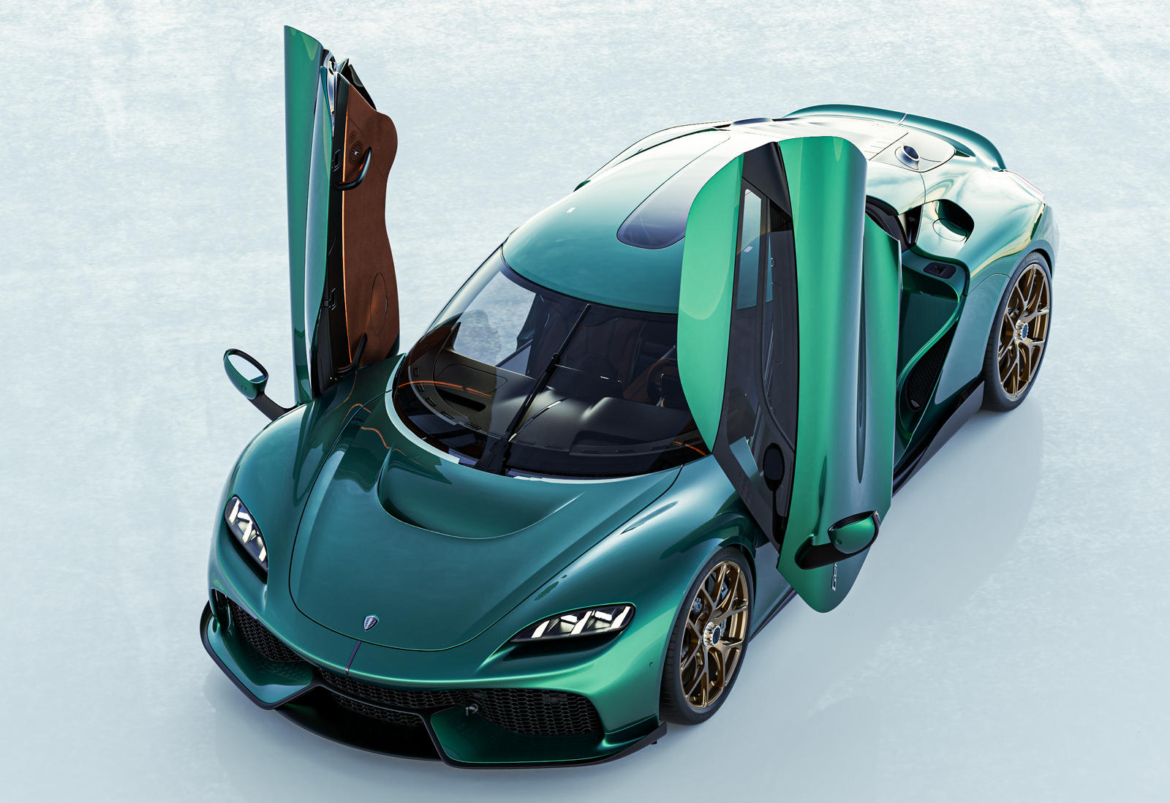In an industry where innovation seems to have reached its limits, Christian von Koenigsegg continues to push boundaries. The founder of Koenigsegg Automotive AB has been revolutionizing the automotive world since 1994, and his latest creation, the Gemera’s drivetrain system, might be his most impressive achievement yet. The hypercar manufacturer recently released a video on YouTube in which Koenigsegg talks in details about the engineering marvel.
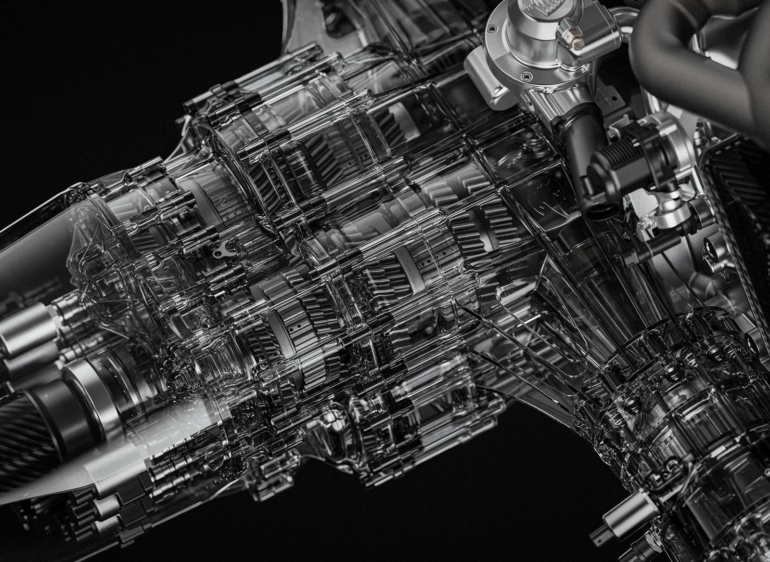
At the heart of this engineering marvel lies the Light Speed Tourbillon Transmission (LSTT), named after the high-end watchmaking mechanism that counters gravitational effects. The system’s most striking feature is its unique architecture: the transmission wraps around Koenigsegg’s “Hot V8” engine, creating an extraordinarily compact package that handles a staggering 2,300 horsepower and 2,028 lb-ft of torque.
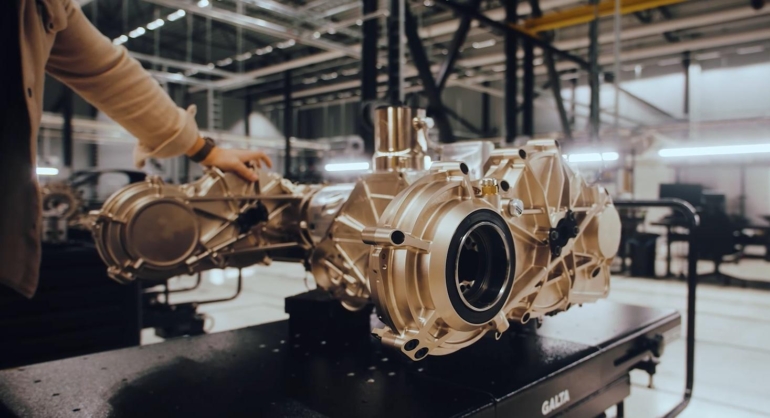
What truly sets this system apart is its departure from traditional differential design. Instead of conventional differentials, the transmission incorporates two “cassettes” that surround the lower half of the engine. These cassettes, equipped with hydraulic clutches, enable precise torque vectoring to each rear wheel independently.
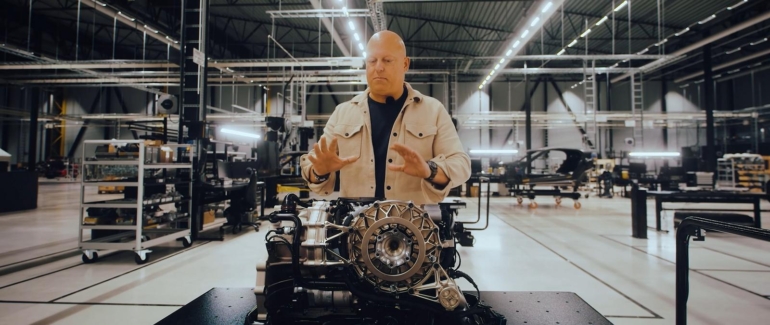
The front axle configuration, dubbed the “Bulldog,” houses another breakthrough: the DarkMatter electric motor. This in-house developed 6-phase motor produces 805 horsepower and delivers power with unprecedented smoothness. Most remarkably, it makes the Gemera the first production car to enable all-wheel drive with a single electric motor. Through clever engineering and sophisticated hydraulic clutches, the DarkMatter motor can independently power each front wheel and send power back through a carbon fiber driveshaft to vector torque to the rear wheels.
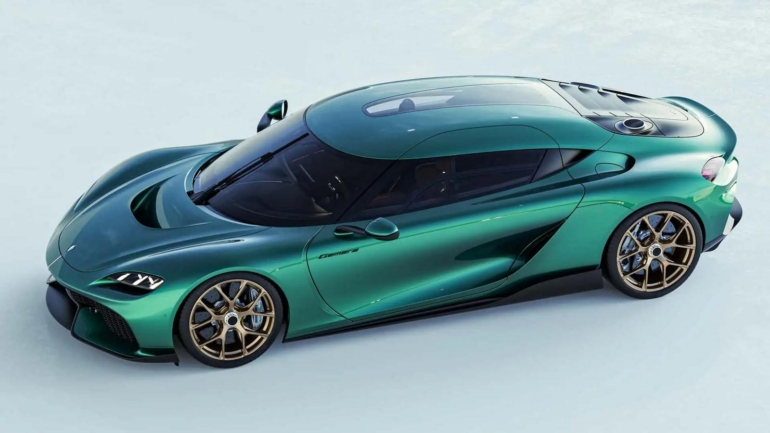
The system’s versatility allows for multiple driving modes: pure electric power (with a range of approximately 31 miles), full internal combustion engine power, or a combination of both. The electric motor also eliminates the need for a traditional reverse gear or starter motor. Von Koenigsegg has even demonstrated that the system is so flexible it can theoretically power the car through just one wheel using either the combustion engine, the electric motor, or both.
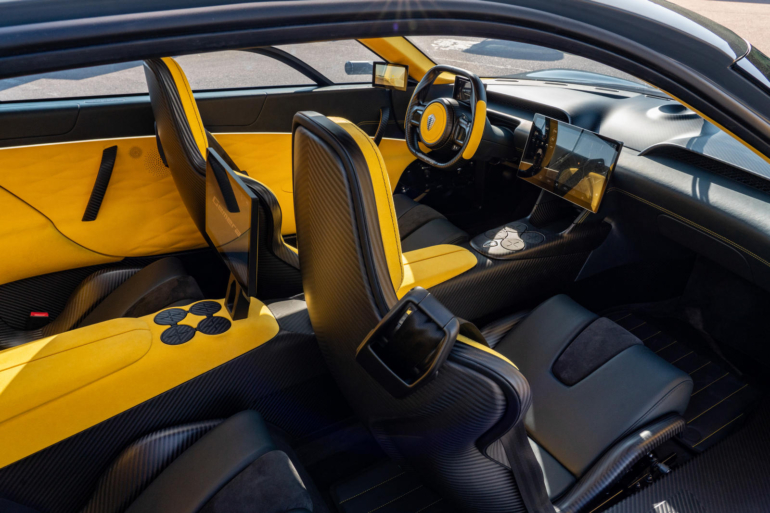
While some may question the complexity of such a system in an era increasingly dominated by pure electric vehicles, the Gemera’s drivetrain proves that innovation in internal combustion is far from obsolete. It exemplifies Koenigsegg’s relentless pursuit of engineering perfection, reaffirming the Swedish automaker’s status at the cutting edge of hypercar development.
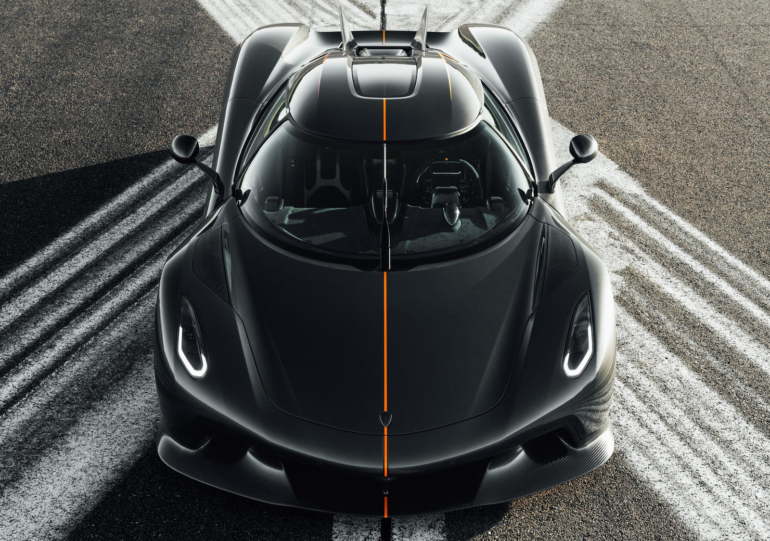
This commitment to pushing the boundaries of performance and efficiency is a hallmark of Christian von Koenigsegg’s visionary leadership. From a young age, he was fascinated by speed and engineering, founding Koenigsegg Automotive three decades ago with the goal of creating the world’s fastest and most advanced hypercars. Over the years, he has introduced many revolutionary technologies such as the Freevalve camless engine, and the first car to achieve a 300 mph top speed—the Jesko Absolut.

Unlike many automakers that rely on external suppliers, Koenigsegg has a strong ethos of in-house development, ensuring total control over every detail, from carbon fiber monocoques to bespoke powertrains. His ability to blend extreme performance with technical ingenuity has set new benchmarks in the industry, proving that true innovation isn’t just about following trends—it’s about redefining them. Through his visionary approach, Christian von Koenigsegg has solidified his legacy as one of the most pioneering figures in modern hypercar engineering.
